9 Female of Scholars of Islam, Quran and Hadith You Need to be Following
Faith
|
Apr 25, 2022
|
9 MIN READ
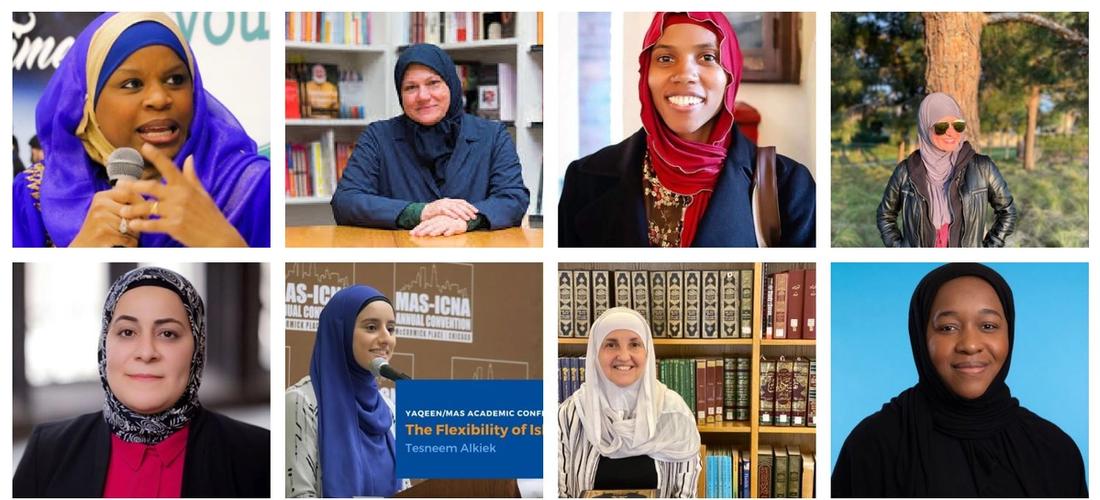
L to R, clockwise: Iesha Prima, Tamara Gray, Jamillah Karim, Maryam Amir, Nuriddeen Knight, Haifaa Younis, Tesneem Alkiek, Feryal Salem
I had a hunger to learn as much as I could about Islam before I proclaimed my shahadah (testament of faith). Islam fascinated me and drew me to it. I initially learned about Islam through the dawah efforts of local Muslims. Once I entered the faith (over three decades ago), I gained access to imams and Islamic scholars to increase my knowledge.
Accessibility to Islamic scholars remains integral to developing better ways to engage in ibadah (worship) and seek a deeper understanding of the Quran, hadith and the richness of Islamic cultures and histories, all of which can lead to spiritual fulfillment and a closer connection with Allah (S). One's pursuit of knowledge is a vital part of their deen. The Prophet (saw) said:
“Whoever takes a path upon which to obtain knowledge, Allah makes the path to Paradise easy for him.” [at-Tirmidhi 2646]
Muslim culture has a stable tradition of religious scholarship that includes female scholars stemming back to the Prophet’s (saw) wife Aisha (ra), who narrated 2,210 hadiths! Despite this, I experienced increasing frustration over the years at the lack of Muslim women scholars. At one point, I became disheartened by an exclusively male perspective on Islam, Quran and hadith. While I value male scholars, it is essential for me (and many other women) to glean Islamic knowledge and advice from a feminine standpoint, which I had been denied for years.
Alhamdulillah, over the years, Muslim women in the U.S. have expanded their voices in Islamic scholarship, creating their own platforms and gaining space in the broader Muslim scholarship. I am thrilled to witness their increased recognition and share them with my daughters, showing that Islam is not solely taught via masculine conduits.
We’ve gathered a list of female scholars of Islam, Quran and hadith for you to check out and learn from. The Muslim women below acquired their Islamic knowledge through academic institutions and via traditional Islamic teaching veins (like learning majalis), earning degrees, certificates and ijaza (Islamic scholarly license) and sharing their knowledge and perspectives with us!
I’ve benefited from watching some of these women, like Iesha Prime, Anse Tamara Gray and Jamillah Karim. Others are new to me, and I think they are all great resources of wisdom for Muslim women to follow on social media. Go peruse their work and scholarship for yourself!
1. Ustadha Maryam Amir
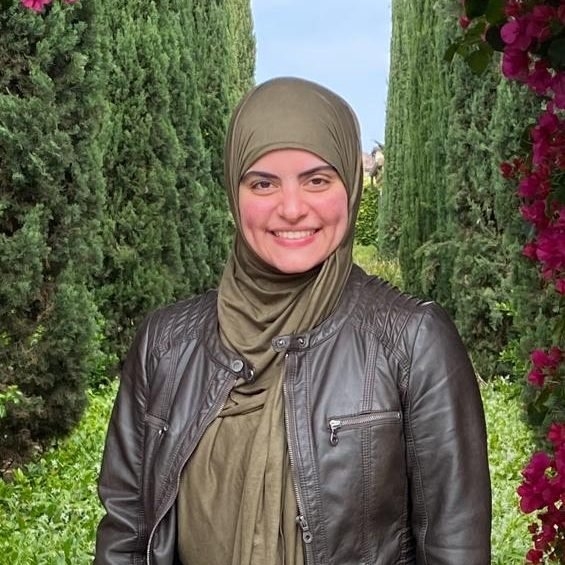
Ustadha Maryam Amir; image source: Yaqeen Institute
Ustadha Maryam Amir earned a master’s degree in education from UCLA and a bachelor’s degree in Islamic Studies from Al-Azhar University. In Egypt, she studied the Quran and memorized it. She has also studied various religious sciences, including Quran exegesis, Islamic law and morality, and women's rights within Islamic law.
Ustadha Maryam actively hosts women who have memorized Quran from around the world to share their journeys through the #FOREMOTHERS campaign, and she is the creator of Qariah, an app that features female Quran reciters from all over the world. Check out my editor Dilshad’s interview with her about the Qariah app here.
2. Nuriddeen Knight
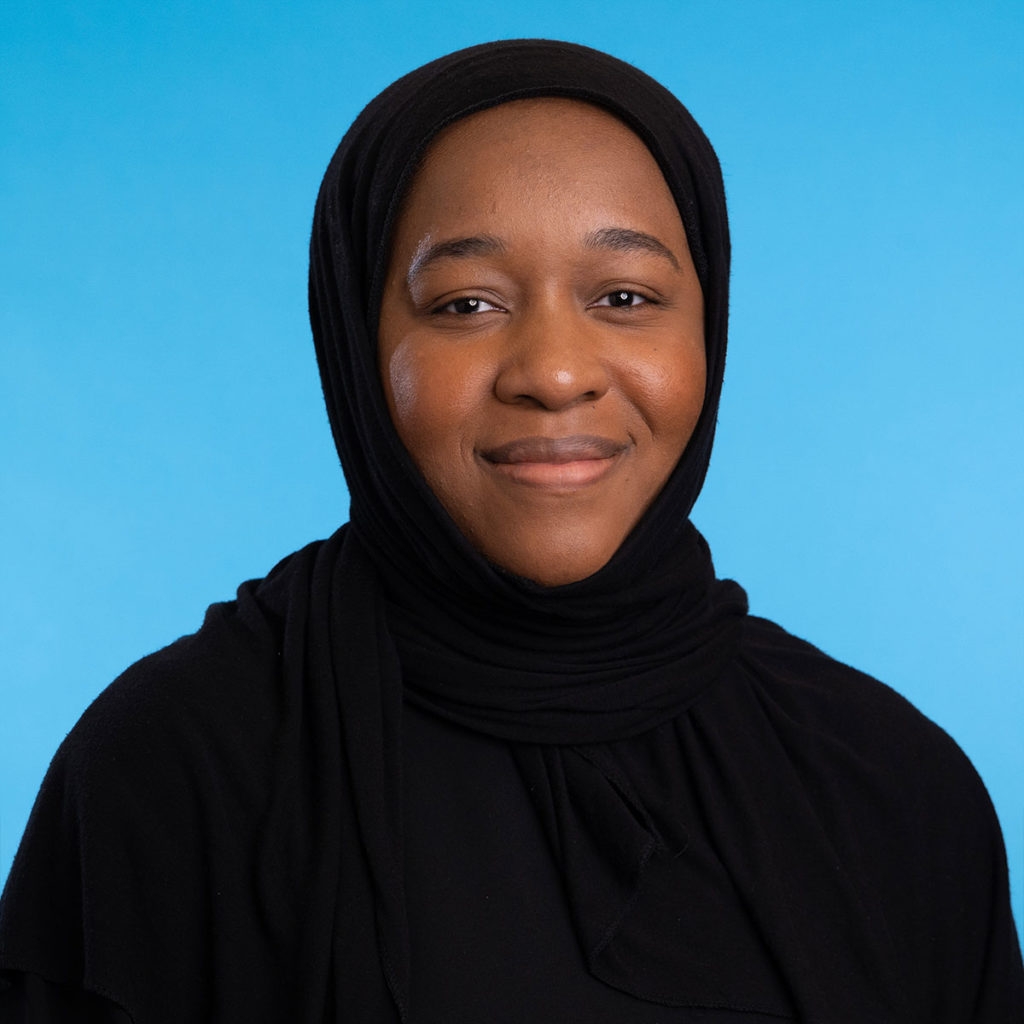
Nuriddeen Knight; image source: Yaqeen Institute
Nuriddeen Knight holds an MA in psychology with a concentration on children and families from Columbia University. She has studied traditional Islamic knowledge, including Islamic law, theology, spirituality and prophetic biographies with local scholars and in the majlis in Amman, Jordan. She is the author of 40 Hadith of Our Mother ‘Aisha, a collection of 40 hadith narrated from the beloved sage, scholar, wife of the Prophet (saw), Lady 'Aisha. She is a fellow with the Yaqeen Institute and the author of the blog, Fig & Olive, where she explores various religious topics.
Find Nuriddeen Knight on Twitter.
3. Dr. Feryal Salem
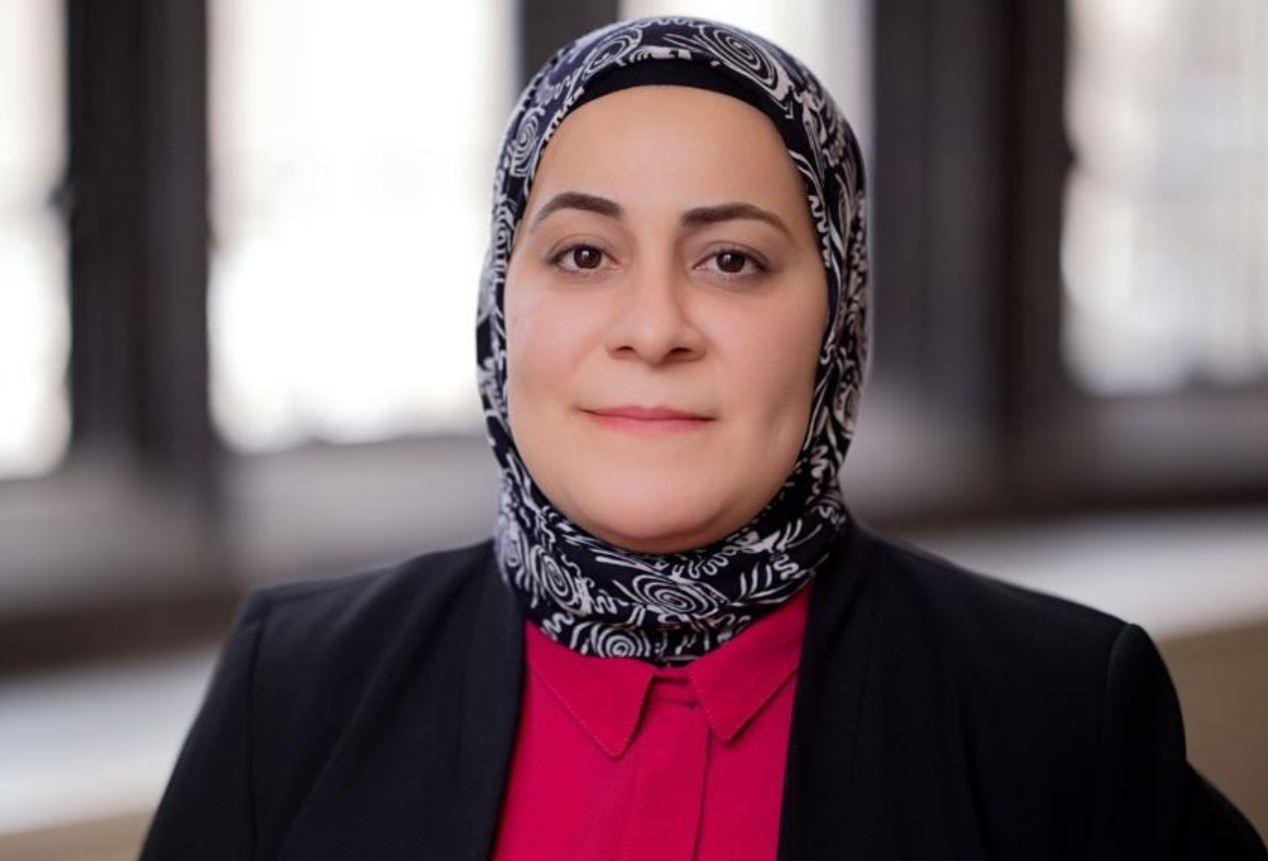
Dr. Feryal Salem; image source: American Islamic College
Dr. Feryal Salem is an Associate Professor of Arabic and Islamic Studies and Director of the Master of Divinity in Islamic Studies and Muslim Chaplaincy programs for American Islamic College. She received her Ph.D. in Islamic studies from the University of Chicago. Her research interests include Islamic philosophy and theology in the post-classical period, interfaith dialogue, and the development of Muslim thought in the contemporary era as it came into conversation with aspects of modernity.
Dr. Feryal is the author of The Emergence of Early Sufi Piety and Sunnī Scholasticism: ʿAbdallāh b. al-Mubārak and the Formation of Sunni Identity in the Second Islamic Century (2016) published by Brill as part of its prestigious “Islamic History and Civilization” series. She was recently named one of “25 Influential American Muslims” by CNN for her work in higher education.
Dr. Feryal serves on a number of professional boards across the country and regularly travels internationally to engage in scholarship on Islam with academics from a range of diverse institutions.
4. Dr. Tesneem Alkiek
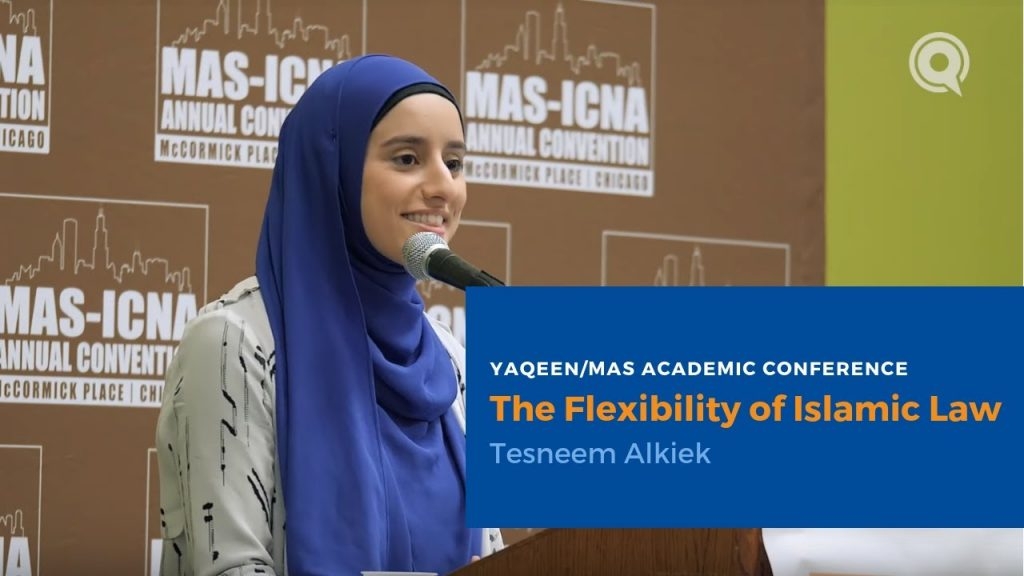
Dr. Tesneem Alkiek; image source: Yaqeen Institute
Dr. Tesneem Alkiek obtained her undergraduate degree in Early Christianity and Islamic Studies from the University of Michigan. She went on to complete her Ph.D. in Islamic Studies at Georgetown University with a focus on Islamic law. Dr. Tesneem currently serves as the Director of Expanded Learning where she works with her team to create curricula and other resources for communities to engage with Yaqeen’s research. She is also a Lecturer in the Department of Philosophy and Religion at Rutgers University-Camden.
Dr. Tesneem is a Yaqeen Institute fellow, where she serves as the organization’s Director of Expanded Learning and Director of Content Strategy.
5. Ustadha Ieasha Prime
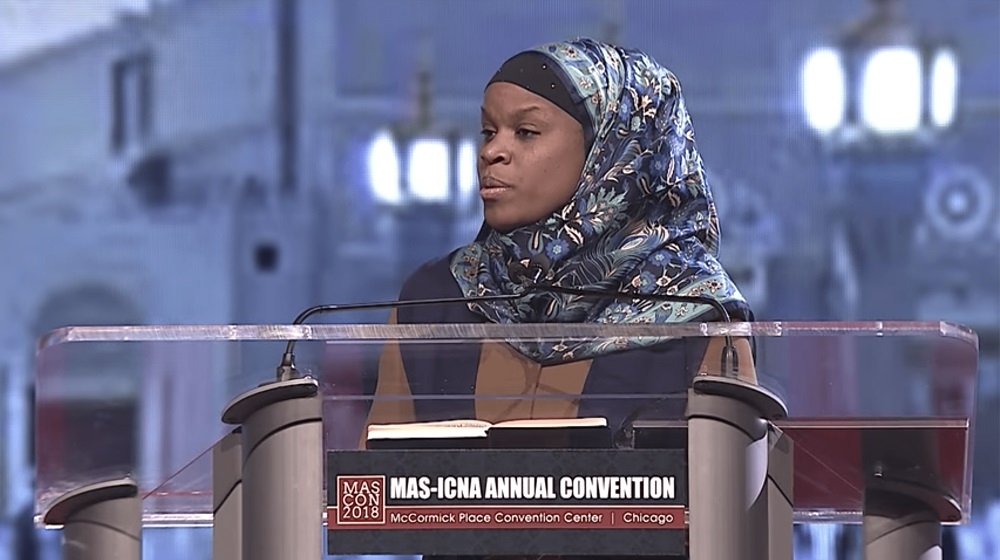
Ustadha Iesha Prime; image source Halal Tube
Ustadha Ieasha Prime is the Director of Women’s Programming at Dar al-Hijrah Islamic Center in Virginia and the D.C. Muslim Women’s Conference founder. She converted to Islam more than 20 years ago after being a youth ambassador to Morrocco and Senegal. There she developed a thirst for knowledge that would bring her to sit at the feet of and learn from some of the top Islamic scholars of our time. After having participated in several circles of knowledge in the U.S. Sr. Ieasha decided to pursue religious studies abroad.
She studied Arabic, and Quran at the Fajr Institute in Cairo, Egypt. Later, she moved to Hadramaut, Yemen and enrolled in Dar al Zahra, an Islamic University for Women. There she studied Aqeedah, Quran, Hadith, Arabic, Jurisprudence (Fiqh), Islamic law, Purification of the Heart and other religious related learning. She has received several scholarly licenses (ijaza).
The work that Ustadha Iesha is most committed to and enjoys has been the development of Islamic programming, Islamic Studies curriculum and Rites of Passage programs for youth and adults. She is most passionate about combining Islamic studies, cultural art, activism and service for the purpose of training leaders to rise above whatever challenges stand in their way and that of the community they serve. In addition to her work at Dar al-Hijrah, she is the co-founder and Executive Director of Barakah INC, an organization committed to training Muslim women in traditional Islamic sciences with a focus on modern applications. She is also a fellow with the Yaqeen Institute and is a proud wife and mother of three children.
Find Ustadha Ieasha Prime on Instagram.
6. Dr. Tamara Gray
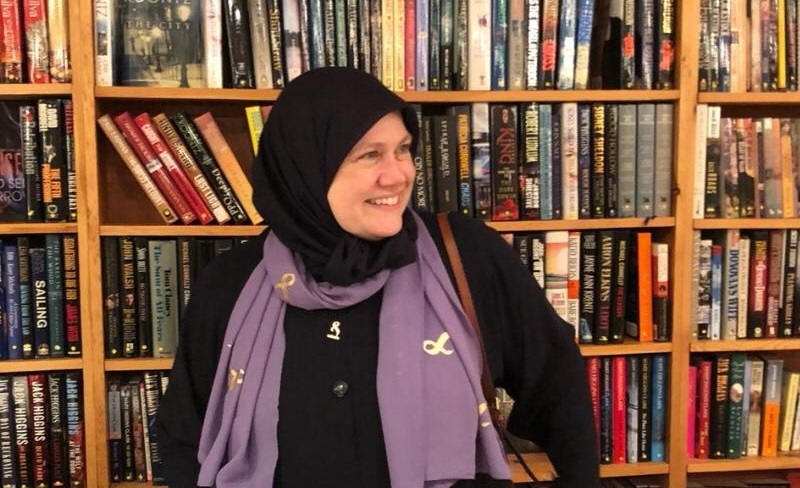
Anse Tamara Gray; image source: Rabata
Anse Dr. Tamara Gray is the founder of Rabata, an organization dedicated to promoting positive cultural change through creative educational experiences. She holds a doctorate in leadership from the University of St. Thomas, a master’s degree in Curriculum Theory and Instruction from Temple University, and spent twenty years studying traditional and classical Islamic sciences, Quran, and Arabic in Damascus, Syria.
Dr. Gray worked in the field of education for 25 years before moving into the nonprofit world. She is now both the Executive Director of Rabata and its Chief Spirituality Officer. Her work includes the daily nitty-gritty of project design as well as the support and mentorship of hundreds of women around the world.
Dr. Gray is also an author, translator and public speaker. Her publications range from several culturally appropriate English language curriculum programs to translations of sacred texts. Dr. Tamara’s most recent work is the translation of Mukhtasir al-Jami’ fi al-Sīra al-Nabawiyya by Samīra Zayid [Compendium of the Collection of Sources on al-Sīra al-Nabawiyya] (Co-translator). Her book, Joy Jots: Exercises for a Happy Heart, is in its second print. Dr. Gray is often engaged to speak about issues of gender, leadership, Islam and spirituality; some of her platforms have included the International Leadership Association, the World Parliament of Religions, the Islamic Society of North America and several universities, including Princeton, Virginia Tech and Oxford University.
She sits on the Collegeville Institute’s Inter-religious Fellows Program board, working to develop educational programming for faith leaders around social justice issues, and serves on the academic council of The Islamic Seminary of America where she is also a faculty member. She is also a council member at the Fiqh Council of North America and is a Senior Fellow at the Yaqeen Institute.
7. Dr. Jamillah Karim
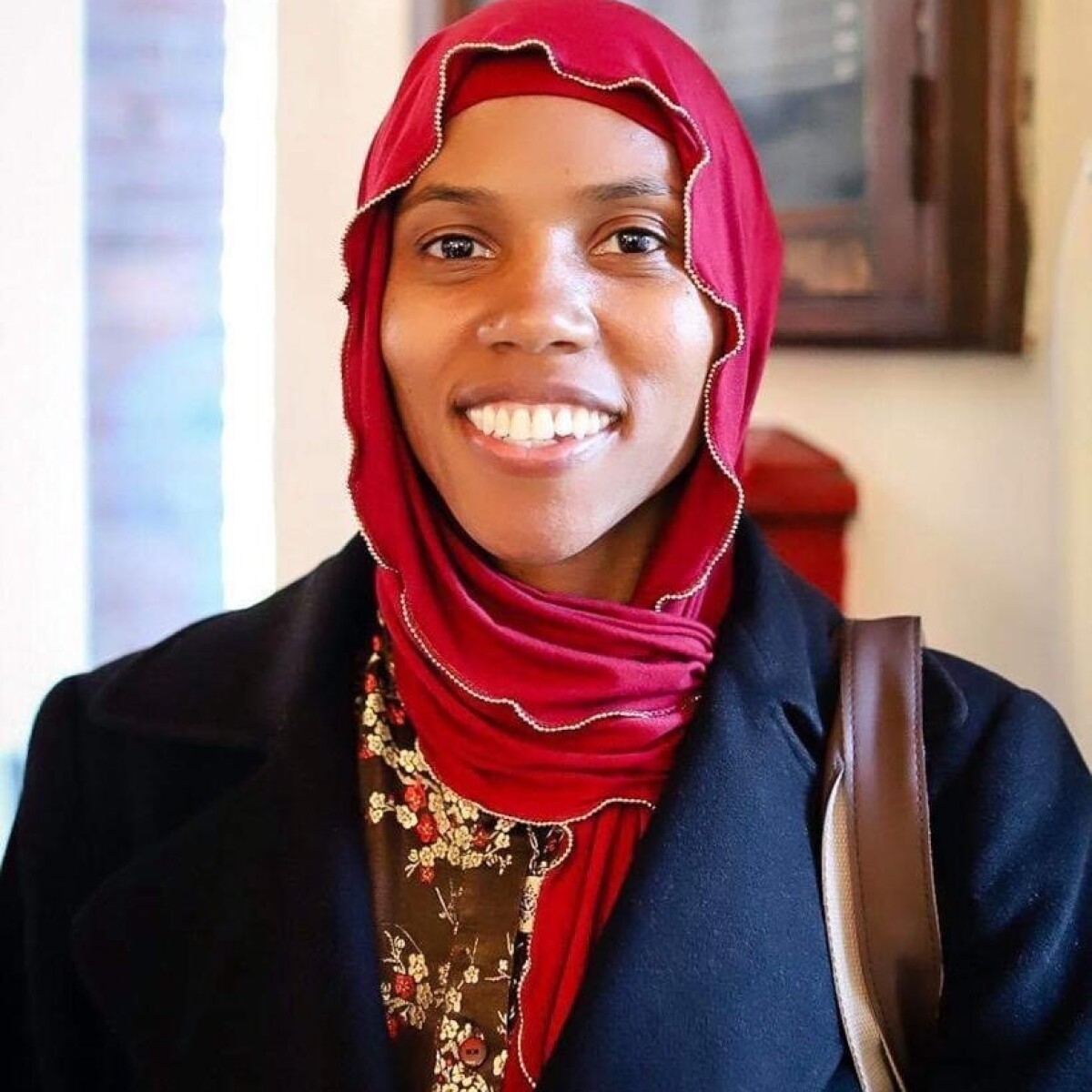
Dr. Jamillah Karim; image source: Islamic World Today Conference
Dr. Jamillah Karim is an award-winning author, lecturer and blogger. Dr. Jamillah specializes in race, gender and Islam in America. Her most recent academic appointment was an associate professor in the Department of Religious Studies at Spelman College, where she taught courses on the study of Islam for six years. In 2010 Dr. Jamillah traveled with her family to Malaysia, where she began her blog Race+Gender+Faith. She is the author of Women of the Nation: Between Black Protest and Sunni Islam (2014, with Dawn Marie-Gibson), which explores women’s experiences and contributions in the Nation of Islam, and American Muslim Women: Negotiating Race, Class, and Gender within the Ummah (2008).
She occasionally contributes articles on spirituality for Azizah magazine. She was recently highlighted as a young faith leader in the black community by JET magazine. Dr. Jamillah holds a Ph.D. in Islamic Studies from Duke University.
8. Dr. Haifaa Younis
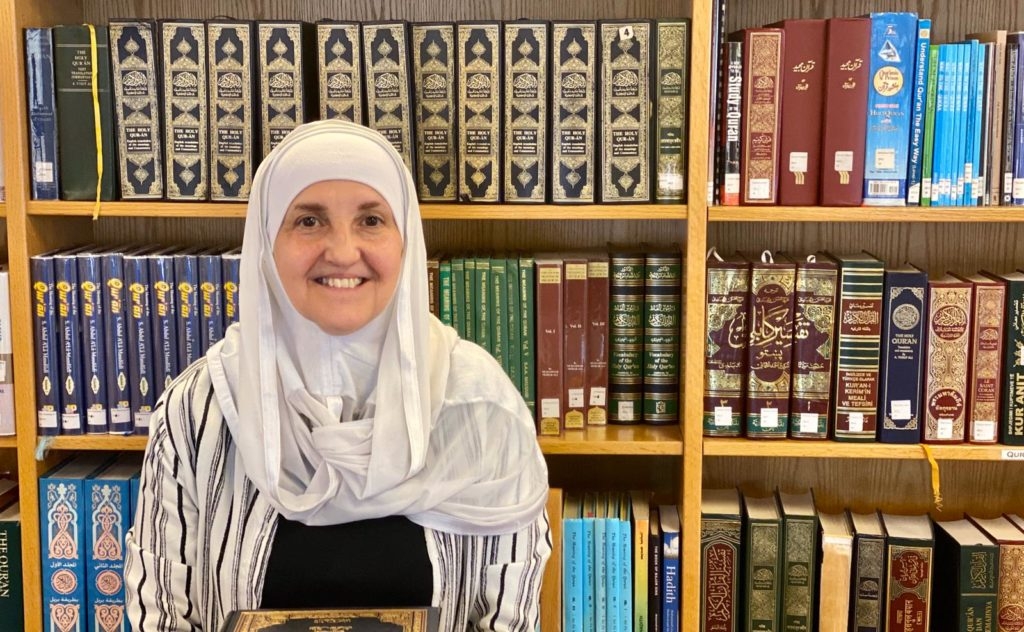
Dr. Haifaa Younis; image source: Ilm Feed
Dr. Haifaa Younis is an American Board Certified Obstetrician and Gynecologist with roots in Iraq. Her pursuit of Islamic knowledge began when she studied with various Islamic scholars from across the United States while she simultaneously attended courses and lectures on subjects including Aqeeda, Fiqh (Islamic Jurisprudence), Usul al-Fiqh (Islamic Jurisprudence Methodology), Hadith and Tazkiyah (purification of the soul).
From the United States she moved to Saudi Arabia, where she graduated from the Mecca Institute of Islamic Studies (Jeddah, Saudi Arabia) and attended the Al-Huda Quran Memorization School (Jeddah, Saudi Arabia), where she completed the memorization of the Quran. She is the founder and Chairman of Jannah Institute and currently teaches seminars on the thematic commentary of various chapters of the Holy Quran and their practical relevance in our day-to-day living.
Additionally, Dr. Haifaa offers retreats on key topics that inspire hearts, combining the inner essence of Islam with an outward expression of practice. Dr. Haifaa is passionate about spreading the word of Allah (SBW) and igniting the love of Islam and the Qur’an through her teachings.
9. Sr. Rabeyah Shad
Sr. Rabeyah Shad moved to Saudi Arabia as an infant where she was raised in a traditional and conservative home in Jeddah. Her journey with the Quran began at a very young age. She studied tajweed at Al Huda Quran Memorization School (Jeddah, Saudi Arabia) under Sheikha Kareema Czerepinski and simultaneously finished memorizing the Quran at the age of 20.
She continued her higher education in Quran and obtained the highest available certificate in Quran teaching: an ijazah (certificate in the recitation of the Quran from memory) in Hafs by way of Ash-Shaatibiyyah followed by Hafs by Tareeq at-Tayyibah. She memorized and studied the Shaatibiyyah and Durrah poems, and then completed an ijazah (certificate in the recitation of the Quran from memory) in the ten Qira’aat from Sheikha Kareema Czerepinski.
Sr. Rabeyah has years of teaching experience and is dedicated to spreading awareness of proper Quran recitation in the Muslim Ummah; promoting the love of the Quran among our mothers and instilling it in the lives of our children, collectively striving to realize the Prophet’s words, “the best among you is who learns the Quran and teaches it”. She teaches women in her onsite classes in Saint Louis, Missouri and also through future online classes, where she hopes to teach women from across the world.
Find Sr. Rabeyah Shad on Facebook.
Awesome, right?! I want to give a shout-out to Yaqeen Institute for amplifying the voices of Muslim women scholarship. Not only have they published works by many of the women mentioned, but they also have fantastic videos of Quran exegesis featuring them in the Quran 30 for 30 video series. There are also other wonderful videos like Anse Tamara Gray’s series on Tahajjud (late night supererogatory) prayer.
Muslim women scholars have a special place in the deen. They serve as beacons, encouraging women to strive to learn the faith and offering sage wisdom from a female perspective.
Let’s dig in and benefit from them!
My list is tiny. Do you have a Muslim woman scholar you like to follow? Drop her name in the comments!
Subscribe to be the first to know about new product releases, styling ideas and more.
What products are you interested in?

